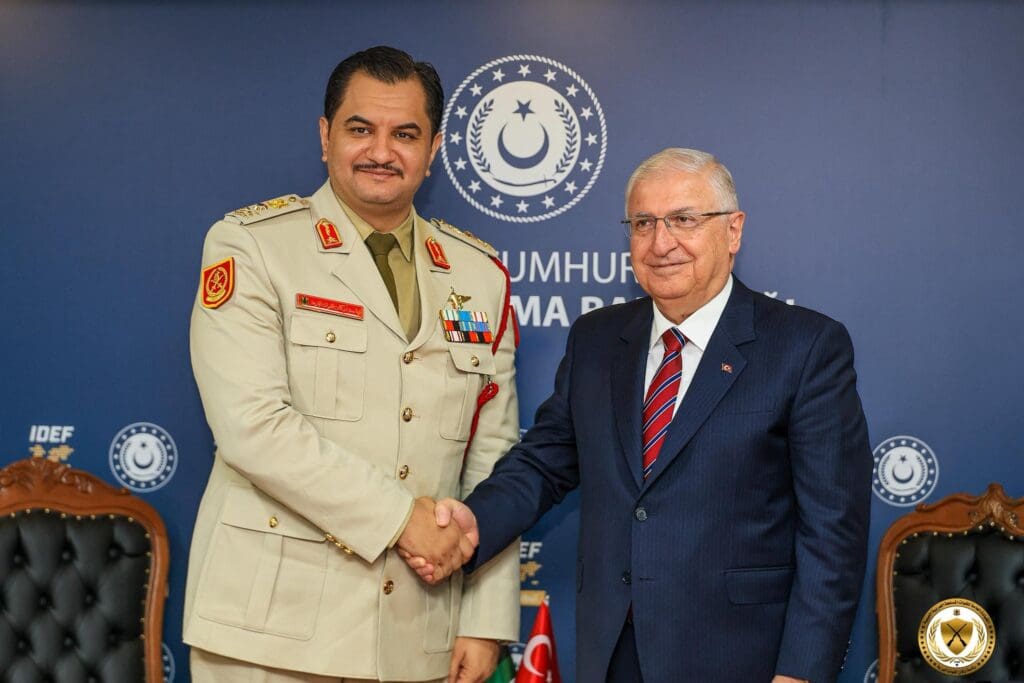For nearly six years, Libya’s eastern-based House of Representatives (HoR) has rejected attempts by the internationally-recognized authorities in Tripoli to ratify a maritime border agreement with Türkiye on the grounds that they were illegal and violated Libyan national sovereignty. In June, however, amid steadily warming relations between the HoR-appointed Government of National Stability (GNS) and Ankara, the eastern parliament—which is the only international recognized legislative body in Libya—changed its tune and announced the formation of a technical committee to review and potentially ratify a memoranda on demarcation first signed by the Tripoli-based Government of National Accord in 2019 and reaffirmed by its successor, the Government of National Unity, in 2022.
The decision is not without broader implications, especially in the eastern Mediterranean basin where tensions continue to rise between Türkiye and Greece, who both share a disputed maritime border with Libya. This has caused the two historical rivals to clash over competing claims over resource rights in the natural gas-rich waters. While Türkiye initially had its ambitions checked by its regional isolation, its recent geopolitical maneuvering has increased Turkish influence in Egypt, Syria and Libya and strengthened its hand in the region vis-à-vis Greece. Indeed, Athens objected to the original Ankara–GNA memorandum of understanding on maritime demarcation and reaffirmed its opposition this past June at a meeting of the European Council, which issued a declaration denouncing the agreement.
However, growing alignment between eastern Libya and Ankara poses a strategic challenge to Greece, which has little influence in Libya yet is actively trying to rally the European Union support against any potential Turkish expansion into the disputed maritime zones. Nevertheless, Ankara’s dual‑track strategy—cooperating with both Tripoli and Benghazi—may prove difficult to counter. As regional alliances shift, Türkiye is cementing its role as an indispensable actor in Libya’s future, while Haftar skilfully exploits the competing interests of regional powers involved in the country. Although Libya’s rival factions hope to leverage foreign support for short‑term gains, their manoeuvrings could well trigger a broader regional escalation.
Why Now?
The HoR’s about-face reflects the latest advancement in an evolving rapprochement between Ankara and Benghazi. What began as economic and trade ties two years ago after years of open hostility has now developed into a form of semi-strategic cooperation between Türkiye and Khalifa Haftar—along with his sons— the de facto rulers of eastern Libya. This shift became particularly visible in April, when Haftar’s son Saddam visited Ankara and met with the Turkish defense minister and other senior military officials. The nascent partnership was further underscored in May, when Haftar’s forces participated in the Anatolian Phoenix 25 joint military exercises with the Turkish army.
Given the current geopolitical shifts in the wider region—reshaped by Israel’s destruction of Gaza, the fall of Syria’s Assad regime, and the recent Iran-Israel war—Ankara likely views cooperation with Benghazi as a golden opportunity to bolster its position in the Mediterranean energy equation. Türkiye’s opening is also aided by the preoccupation of other key parties, including the EU, which appears distracted and divided over a range of domestic and international challenges. Egypt’s ambiguous position—perhaps pragmatically driven by its growing mutual interests with Ankara and its strong alliance with Haftar, its main ally in Libya— adds further uncertainty and opportunity. This leaves Athens in a difficult position, having previously isolated Ankara through the establishment of the East Mediterranean Gas Forum, an international organization formed by Greece, Cyprus, Israel and Egypt in 2019, and now includes Palestine, Jordan, Italy and France. Meanwhile, Athens finds itself with few cards to play in Libya’s shifting geopolitical landscape, holding little strategic leverage with either side.
The Libyan Calculation
For his part, Khalifa Haftar believes that courting Türkiye by offering the possibility of ratifying the maritime agreement could strengthen his position vis-à-vis his rivals in western Libya, whose political and military alliances have become increasingly fragmented—particularly following the clashes that erupted in May between militias affiliated with the GNU and the Presidential Council in Tripoli. Ankara’s response to the clashes has been cautious, issuing calls for de-escalation without explicitly backing the GNU, as it had in the past when the GNU faced military threats.
Recently, in a rare moment of foreign policy consensus between the authorities in Tripoli and Benghazi, both sides denounced Athens for issuing hydrocarbon exploration tenders in disputed Mediterranean waters bordering Libya. For years, both Türkiye and Greece have exploited Libya’s internal divisions, attempting to win over one of the rival authorities—either to legitimize the Ankara–Tripoli maritime agreement or to tacitly endorse the corresponding Greece–Egypt maritime demarcation agreement, often at the expense of Libya’s sovereign rights.
While this emerging consensus could, in theory, serve Libya’s national interest, in practice it appears to be driven more by narrow political agendas. The GNU, facing growing popular discontent and attempts by the HoR and parties within the High Council of State to replace it, continues to mobilize its affiliated militias to tighten its grip on Tripoli. In a bid to ensure its political survival, the GNU is seeking to alter Ankara’s support for de-escalation in the capital by signing a new MoU between Libya’s National Oil Corporation (NOC) and the Turkish Petroleum Corporation (TPAO) to conduct geological surveys in four maritime cites—further inflaming tensions with Greece.
On the other side, Haftar is capitalizing on regional rivalries to regain lost momentum. Following previous failures to gain international legitimacy, he is now using the prospect of MoU ratification as leverage—both to entice Ankara and to pressure the EU into recognizing his political role on the international stage. Haftar is also wielding another card in his pocket of critical importance to the EU—migration to Europe from Africa.
On July 8, Libya’s eastern authorities expelled a high-level EU delegation responsible for migration issues from Benghazi after it refused to meet with Osama Hammad, head of the GNS, citing its lack of international recognition. At the same time, the eastern-based Coast Guard appears to be turning a blind eye to the rising number of migrants departing from Libya’s eastern coast on route to Crete and the Gavdos Islands. Since the beginning of the year, 7,300 arrivals have been recorded via this route—compared to fewer than 5000 in all of 2024.
Traditionally, most irregular migration from Libya departed from the western coast toward Italy. The eastern spike suggests a calculated effort by Haftar to pressure the EU and Athens into signing funding and training agreements with his forces—similar to the 2017 anti-migration MoU Italy signed with the GNA. This strategy already appears to be bearing fruit. Libya’s coast guard has started training in Crete, while Greece’s foreign minister’s recently visited Benghazi and met with Haftar.
Beyond Tactical Pragmatism
Although Libya’s eastern authorities’ tactical posturing with Türkiye, Greece, and the EU may be designed to improve its strategic hand, it also risks undesirable escalation. Should dialogue and consensus fail, the region could face legal, commercial and even military conflict. Greece is unlikely to act alone and will depend heavily on strong support from both the EU and the United States.
While Libya’s motivation may include hopes of benefiting from offshore oil and gas revenues, especially with Türkiye’s stated interest in exploration projects, the maritime deal—as presented in the Turkish narrative—grants Libya broader maritime rights that could lead to new discoveries. However, given Libya’s ongoing fragmentation, Ankara’s superior military and technological capabilities are likely to ensure it remains the dominant player in any future Mediterranean arrangement involving Libya.
Looking ahead, Ankara–Benghazi strategic cooperation is likely to remain pragmatic—rooted in overlapping interests and carefully calibrated to preserve mutual benefits while maintaining a degree of mutual suspicion. Should the maritime MoU be ratified, Türkiye will probably seek to translate it into concrete security, energy and infrastructure contracts across both eastern and western Libya, while further expanding its footprint in the eastern Mediterranean. Haftar, on the other hand, will continue to offer selective concessions—using the MoU to deepen ties with Ankara and pledging tighter migration controls and enhanced security cooperation with Athens and the EU—thereby diversifying his external alliances and bolstering his semi‑official legitimacy without surrendering operational autonomy.


